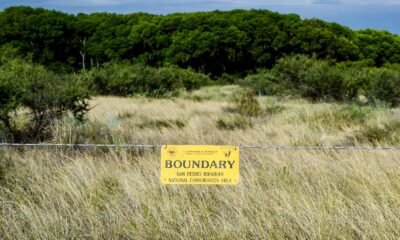Abortion Policy
Judge Dismisses Efforts to Thwart Abortion Rights Ballot Measure

An attempt by Arizona Right to Life to block the state’s abortion rights initiative was rejected by a court on Monday. Maricopa County Superior Court Judge Melissa Iyer Julian ruled there is no legal basis to prevent the initiative from being considered by voters.
“The description accurately and fully communicated the initiative’s key provisions,” wrote Judge Julian. “This Court will not order its removal from the general statewide election ballot.”
The anti-abortion group argued that the Arizona Abortion Access Act’s 200-word summary on petition sheets was misleading, potentially making all signatures invalid. However, Judge Julian disagreed, stating the organization’s concerns should be addressed in the political sphere instead.
“Concern about the impact this initiative may have on existing abortion regulations is not a ground to compel the initiative’s removal from the ballot,” Julian stated, referencing prior rulings.
This recent lawsuit marks the second high-profile failure by abortion opponents to challenge the initiative. Last month, Judge Christopher Whitten ordered eight GOP lawmakers to replace the term “unborn human being” with a more neutral term in voter pamphlets. The group is appealing that case.
Attorneys for Arizona Right to Life argued that the initiative’s summary omitted key words, misleading voters about its intent. They claimed that if people knew how broadly the initiative would impact current laws, they would not have signed the petitions.
Additionally, a related claim about petition circulators was dropped, with Arizona Right to Life noting it wouldn’t affect the initiative anyway. The campaign behind the initiative gathered over 820,000 signatures, supported by more than 7,000 volunteers.
The Arizona Abortion Access Act seeks to enshrine abortion rights into the state constitution, allowing abortions up to fetal viability, approximately 24 weeks, and later if necessary to protect the woman’s health.
One criticism from Arizona Right to Life focused on the term “health care provider” versus “treating health care provider.” They argued that this omission misled voters. Julian found no issue, stating the definition of a health care provider was clear and comprehensive.
Julian also dismissed claims that excluded terms like “good faith judgment” were misleading. She reasoned that it’s understood that medical decisions are based on a physician’s expertise and ethical judgement.
Arizona Right to Life’s chief argument was that the summary didn’t explain the initiative’s impact on existing laws. The state currently has a 15-week abortion ban, which may be nullified if the act passes. Judge Julian cited prior rulings, asserting that initiative summaries are not required to detail potential effects.
“Other health care policies have similar language,” Julian noted. She added that assessing the initiative’s full impact would be premature, as voters have not yet decided its fate.
Dawn Penich, spokesperson for the Arizona for Abortion Access Campaign, labeled the lawsuit “meritless” and expressed confidence in the initiative’s prospects both in court and at the ballot box.
“We aren’t surprised by this win because our opposition’s arguments had no basis in Arizona law,” Penich said in a statement. “If our opposition appeals, we are confident we will prevail just as we are confident we will win at the ballot box this November.”
Arizona Right to Life did not respond to requests for comment on the ruling or potential plans to appeal.


















